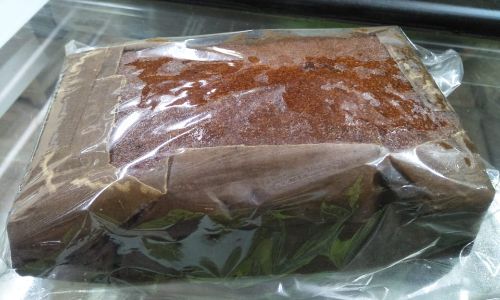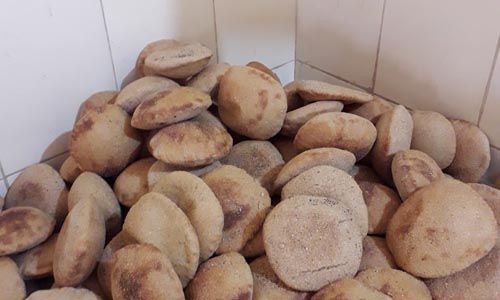Bloomberg said, "Steel mills in China are finding it difficult to obtain funding. Much of the imported iron ore is being used as collateral for trade-financing deals." Yet, the din in Goa for resumption of mining goes on unabated. Perhaps, no one understands what the experts are saying.
March 10-16, 2014
Team GS
But do the lobbyists know?
According to global experts prices of iron ore that also fuels the BJP’s and Congress’ fund bank bounced back sharply recently from a seven-month low as Chinese imports broke records. But the key questions really are: What is driving record imports given the fact that steel output in China has slowed down? Why during the slump, did Chief Minister Manohar Parrikar not relent for a moment, over his demands for the resumption of mining in Goa? Is he, looking at the immediate future for political gains and not at the bigger picture?
Watching international business channels over the past month, two items became obvious to us, the surplus in what is called global seaborne iron ore, against the backdrop of the slowdown in Chinese demand, actually pushed prices up. Contradictory as this may appear, Bloomberg, citing data from Shanghai Steelhome Information Technology, reported that inventories at Chinese ports were 100.2 million tons in the last week of February.
China's iron ore imports reached a record 86.8-million tonnes earlier, topping a previous high of 77.8-million tonnes set only two months ago. The surge in shipments inflated stockpiles at Chinese ports to the record 100.2 million tonnes, suggesting that actual domestic consumption was anything but brisk.
Chinese steel mills and traders have been buying more iron ore to use as collateral to secure loans. This is the singular reason why Chinese imports are growing even though the slowdown in the economy has hurt the demand for steel, which is used in construction activity. Late in February, the People's Bank of China (PBOC), China's central bank, issued forward bond-repurchase agreements in order to drain cash from the market. The decision according to experts was taken because, "The move came after surprisingly stronger credit in January." The PBOC's move highlights the fact that authorities in China are determined to stunt credit growth as they look to shift from investment-led growth to consumption-led growth.
Bloomberg said, "Steel mills in China are finding it difficult to obtain funding. Much of the imported iron ore is being used as collateral for trade-financing deals." Yet, the din in Goa for resumption of mining goes on unabated. Perhaps, no one understands what the experts are saying.
A state-run iron ore trading firm in China told Reuters again late last month that steel mills are turning to state-owned enterprises for funding by keeping iron ore as collateral. "The state-owned companies can obtain loans even in the present environment, and they are lending to steel mills at higher rates than bank rates. Once the mills repay their debts, they receive their iron ore shipments back," an official told Reuters.
There are also traders who obtain cheap dollar-denominated loans via letters of credit overseas, import the iron ore and then sell it in the spot market. They invest the cash, which they need to pay back in three to six months, in other sectors such as real estate.
These trade-financing deals explain the recent surge in imports. While they helped push up prices higher last month, they could have a negative impact on prices in the future. Goa's pro-mining lobbyists need to understand this and quickly.
The Chinese economy has been slowing down. So far, China has not shown any intent to provide stimulus like they did during the financial crisis of 2009. This, global experts say, shows that the Chinese authorities are shifting from investment-led to consumption-led growth. While the rebalancing will benefit the Chinese economy in the long term, it will be painful in the near term. Given the slowdown in the Chinese economy, coupled with the efforts to slow down credit growth, construction activity is expected to be weak, which would curb demand for steel. This would hurt iron ore prices is the verdict of analysts.
Weakness in iron ore prices could trigger margin calls from state-owned companies that have lent to steel mills. But if the slowdown in the Chinese economy persists and demand for steel remains lackluster, steel mills might find it difficult to meet those margin calls. This could force the lenders to start dumping iron ore into the market, which would push prices down sharply.
BOTTOMLINE
1.Chinese steel mills and traders are buying more iron ore to use as collateral for loans, helping imports and stocks of the raw material defy expectations for a slowdown in demand by the world's biggest consumer.
2.Beijing's tightening of lending in sectors plagued by overcapacity such as steel has made it harder to secure bank loans, spurring financing demand for iron ore.
3.Robust Chinese imports are supporting prices and underpinning expansion plans at top miners such as Vale, Rio Tinto and BHP Billiton. Some steel mills and traders could not stop importing iron ore, because once they stop, they will lose their financial support from banks.
4. The use of iron ore for financing is similar to schemes using copper, which helped lift China's copper imports to a record high of 536,000 tonnes last month.



